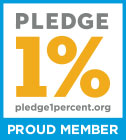Q&A with Johan Alvinger at Bankomat
 This rise in popularity of digital payments has led to many new innovations and user experiences. The fall in popularity of cash has required banks to collaborate their services to ensure that they can continue to offer access to cash while reflecting lower use.
This rise in popularity of digital payments has led to many new innovations and user experiences. The fall in popularity of cash has required banks to collaborate their services to ensure that they can continue to offer access to cash while reflecting lower use.
Sweden is a country that is held up by many as a pioneer in digital payments. However, there remains a significant number who rely on analogue services, including cash. This has led to it also being a pioneer in cash services, with the banking industry pooling their ATM operations in a move that is now being replicated across the world.
Payments Consulting Network Associate David Fagleman talked to Johan Alvinger, Business Development Director at Bankomat, to discuss how they have adapted to change and payment behaviour in Sweden.
DF: Hi, Johan! Please provide a brief high-level overview of your business.
JA: Bankomat is one of the world’s oldest ATM operators, second only to Barclays, who beat us by one week! We started out in 1967 as an ATM pooling network but this changed in the mid-70s, when the banks in Sweden saw their ATMs as strategic assets, and each bank had their own ATMs all under the Bankomat brand. The ATM pooling model was re-established in 2010, and by 2013, we assumed management of all the ATMs owned by the 5 major Swedish banks.
We facilitate electronic card transactions and logistics, and we move cash around Sweden. We’re the only way to get cash from one bank account to another, which is important as bank branches in Sweden no longer offer cash over the counter. We run our business as a cost-plus entity, where banks let their customers use Bankomat to withdraw and deposit cash free of charge. Moreover, we proudly hold the position as Sweden’s largest provider of foreign exchange.
DF: What are you most looking forward to at the Europe and Emerging Markets ATMs and Cash Summit 2023?
JA: I’m really looking forward to networking and keeping up with the latest developments. I’m also looking forward to my presentation and sharing our knowledge and experience of ATM pooling for the past decade.
“Cash is a key element to resilience-planning as it can withstand electronic outages. A truly resilient payment landscape has all payment methods working efficiently.” – Johan Alvinger, Business Development Director, Bankomat
DF: Sweden is commonly held up as a ‘cashless country,’ how true is this? Is Sweden genuinely a cashless society?
JA: Of course not! Nor is it likely to be in the foreseeable future. What is true is that cash is not commonly used by 90% of Swedes. Swish, the person-to-person payments service, enjoys significant popularity. However, it is important to note that 10% of Swedes can’t, or don’t, use digital payments. That’s too many to disregard.
DF: As Sweden’s leading ATM operator, how have you adapted to the changing payments landscape?
JA: Not much, as we’ve already adapted! We are seeing other countries adopting strategies, like ATM pooling, that we implemented years ago.
DF: Are there any other innovations that you have on your product/service roadmap for the next 12 months?
JA: We are looking at how we can deliver PSD2 requirements, but Sweden already has a well-developed internet banking and mobile payments service, which is the most efficient way of making transactions. We are also exploring the possibility of providing a pay-by-cash cash bill payment service, allowing individuals to pay bills using cash since there is currently no way for people to pay bills in cash. Since February 2022 there has been an increased focus on resilience readiness. Sweden has not been to war for hundreds of years, but current events brought to light that as a society, Sweden needs to rebuild resilience. In such events, behaviour can quickly change. For instance, the invasion of Ukraine prompted a 30% surge in cash withdrawals, the majority of which has now been returned.
Cash is a key element to resilience planning as it can withstand electronic outages. A truly resilient payment landscape has all payment methods working efficiently.
“Across Europe there is a trend towards ATM pooling, and I am regularly contacted by other countries about how they can implement our model in their territory. This has been the case for the past 5 years and I expect it to continue.”- Johan Alvinger, Business Development Director, Bankomat
DF: What industry changes or trends do you see occurring over the next 2-3 years that will have a major impact on your business and/or your clients?
JA: Across Europe there is a trend towards ATM pooling, and I am regularly contacted by other countries about how they can implement our model in their territory. This has been the case for the past 5 years and I expect it to continue. In Sweden, there is only one Cash in Transit operator (CiT), which is not healthy from a resilience perspective. To address this, we have taken proactive measures and built our own CiT for internal use. This aims to remove the dependence on third parties and enable us to be more confident in servicing our clients.
DF: Do you think that a focus on ‘digital payments’ and ‘tech’ has meant that governments and regulators have placed a lower priority on face-to-face and in-person services?
JA: To some extent, yes, but we have seen an increased discussion around payment choice. There’s also a discussion about legal tender in Sweden at the moment, but there’s no requirement for shops to accept cash (unless it’s for government services). The focus on protecting cash and the cash user has been relatively low in Sweden, given that it is a very tech-intensive country. Most people don’t require cash, but most want it in case of an emergency, and there are the 10% that don’t use digital payments. There is also a growing issue with digital ID – as the only way to have one is to have mobile banking with one of the main banks, excluding some people who do not have bank accounts. It’s important to prioritise finding ways to include them in the digital society.
DF: Final question…. Do you think we will be living in a cashless society in 2033?
JA: The short answer is no. But the physical form of cash might be different. For example, CBDCs could be new cash. Central bank money and commercial bank money are different, with central bank money guaranteed by the authorities. Central bank money, in the form of cash, will still persist but it might not be paper-based.
CONCLUSION
It is clear that innovation is important for all payment methods, not just the most popular ones. As Johan noted, this principle extends and can be applied when reviewing resilience, securing access to digital ID and of course, ensuring access to cash. It will become more and more important for central banks and regulators to keep an eye on these developments and ensure payment systems remain steadfast in the face of change, safeguarding the needs and well-being of the users and the stability of financial ecosystems.
Author: David Fagleman, Associate, London, Payments Consulting Network
With more than a decade of experience in payments and public policy, David is a seasoned expert in communications and public policy. He has worked within the financial services and payments sector, collaborating with various organisations, including Westminster-based think tanks, charities, start-ups, and financial services membership bodies. Notably, in 2020, he co-founded the independent consultancy Enryo.
***
Payments Consulting Network is one of the media partners of the upcoming Europe and Emerging Markets ATMs and Cash Summit 2023 happening in Ireland on October 18 &19, 2023.
Johan Alvinger will be among the distinguished speakers at the event, discussing insights on “The (New) Role of Cash in Society”.
***
If you found this article helpful and would like to read similar articles, please subscribe to our newsletter.
To get notified of our latest posts, follow the Payments Consulting Network company LinkedIn page and click on the bell icon at the top right section of our company profile.




